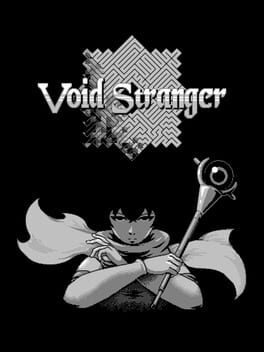Void Stranger's approach to progression is uniquely interesting.
Here is an example:
You're just a few levels in, and encounter your first npc. Because of some tricky placement, you end up accidentally pushing that npc off a ledge. Oh no! What was that about? You reset the level. Now the npc isn't them anymore. Did you do something bad? Was that character important? Will you need to restart the game? How would you even do that, there doesn't seem to be any save file management in the menus. The game will not answer any of these questions, you will just have to move on and continue playing.
I got into these moments of confusion several times in my playthrough. And every time and I was more hooked.
This dedication to being unhelpful carries on to the puzzles of the game. The hints as to what you need to do to get different endings are few, and always very cryptic. I found this to be both frustrating, and really rewarding. Not only because it made any new discovery that much more exciting, but because it also forced me to deeply engage with the world and its stories, by scouring each piece of lore with information on what is going on.
That world is really well written and I grew attached to many of the characters.
You follow several storylines that don't end up being very deeply intertwined, but still are related to each other in interesting ways.
Similarly, even various of the mechanics of the game end up being related to elements of the story in ways that aren't completely necessary, or completely explained. But still make the world feel richer.
Not everyone will enjoy Void Stranger. But it touched me deeply, and it radically changed my perception of how videogames can approach storytelling and player progression.
Here is an example:
You're just a few levels in, and encounter your first npc. Because of some tricky placement, you end up accidentally pushing that npc off a ledge. Oh no! What was that about? You reset the level. Now the npc isn't them anymore. Did you do something bad? Was that character important? Will you need to restart the game? How would you even do that, there doesn't seem to be any save file management in the menus. The game will not answer any of these questions, you will just have to move on and continue playing.
I got into these moments of confusion several times in my playthrough. And every time and I was more hooked.
This dedication to being unhelpful carries on to the puzzles of the game. The hints as to what you need to do to get different endings are few, and always very cryptic. I found this to be both frustrating, and really rewarding. Not only because it made any new discovery that much more exciting, but because it also forced me to deeply engage with the world and its stories, by scouring each piece of lore with information on what is going on.
That world is really well written and I grew attached to many of the characters.
You follow several storylines that don't end up being very deeply intertwined, but still are related to each other in interesting ways.
Similarly, even various of the mechanics of the game end up being related to elements of the story in ways that aren't completely necessary, or completely explained. But still make the world feel richer.
Not everyone will enjoy Void Stranger. But it touched me deeply, and it radically changed my perception of how videogames can approach storytelling and player progression.
